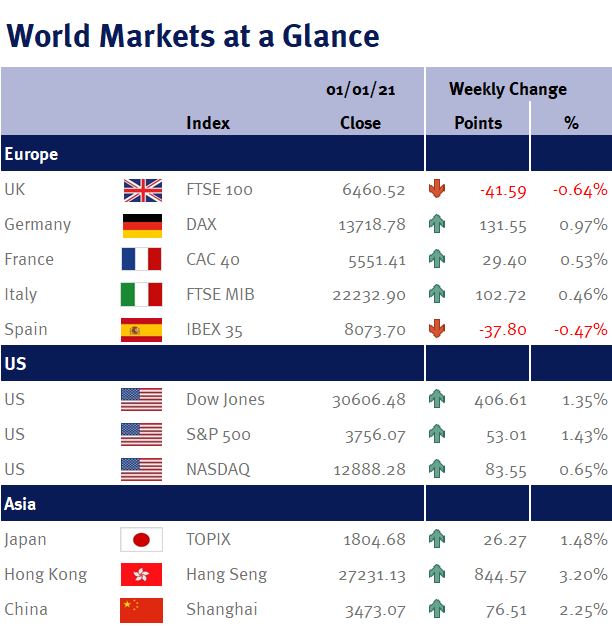In addition, we had a Brexit trade agreement – and while it could have been better for UK companies, it does remove much of the uncertainty over their future trading relationship with the EU. The agreement strengthened the pound to $1.3672 (its highest level since April 2018) – but what is good for the pound is bad for the FTSE-100 as around two-thirds of the FTSE-100’s total revenue is derived from abroad, and so a strong pound is negative for the FTSE-100 as it reduces returns for exporters and the value of overseas earnings – hence why the FTSE-100 was among the worst performers over the week, falling 0.64%.
However, the biggest excitement was news that Donald Trump signed a $2.3tr stimulus package, which could increase fiscal aid for most Americans to $2,000 from $600 – which would help the US economic recovery to regain its momentum.
Although the package was blocked by the Senate Majority Leader Mitch McConnell, it simply puts more focus on next week’s Senate run-off elections in the state of Georgia – if Democrats win the two seats, it would flip control of the Senate for at least the next two years and result in the Democrats controlling both houses of Congress and the White House and would mean we are likely to see an even larger stimulus package than the current $2.3tr proposal.
Looking ahead to this week, as we have just said, our eyes will be focused on Tuesday’s (5 January 2021) run-off elections in Georgia. Data wise, of most interest to us will be the weekly US jobless claims data on Thursday (7 January 2021) and the US employment data (non-farm payrolls; unemployment rate; participation rate; and average earnings) on Friday, given the recent stricter lockdown restrictions. Other US data includes: ISM (Institute for Supply Management); and factory orders.
Elsewhere we have Eurozone CPI inflation and retail sales; and Chinese Caixin PMI (Purchasing Managers’ Index).
Investment Management Team


